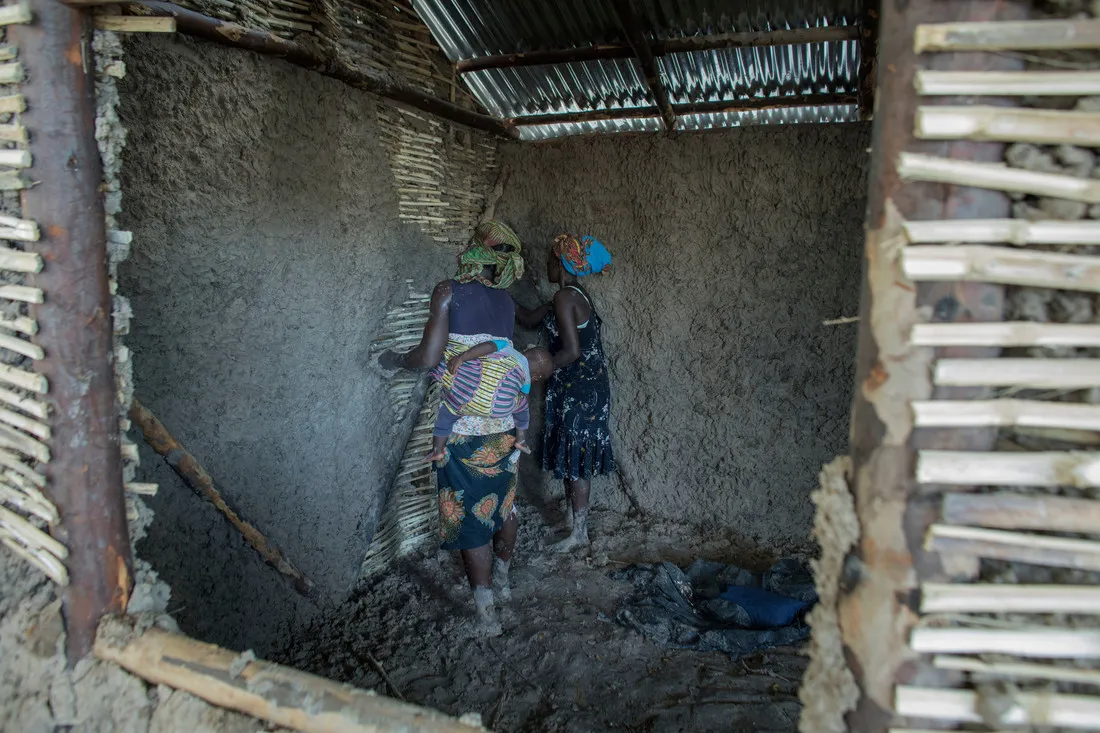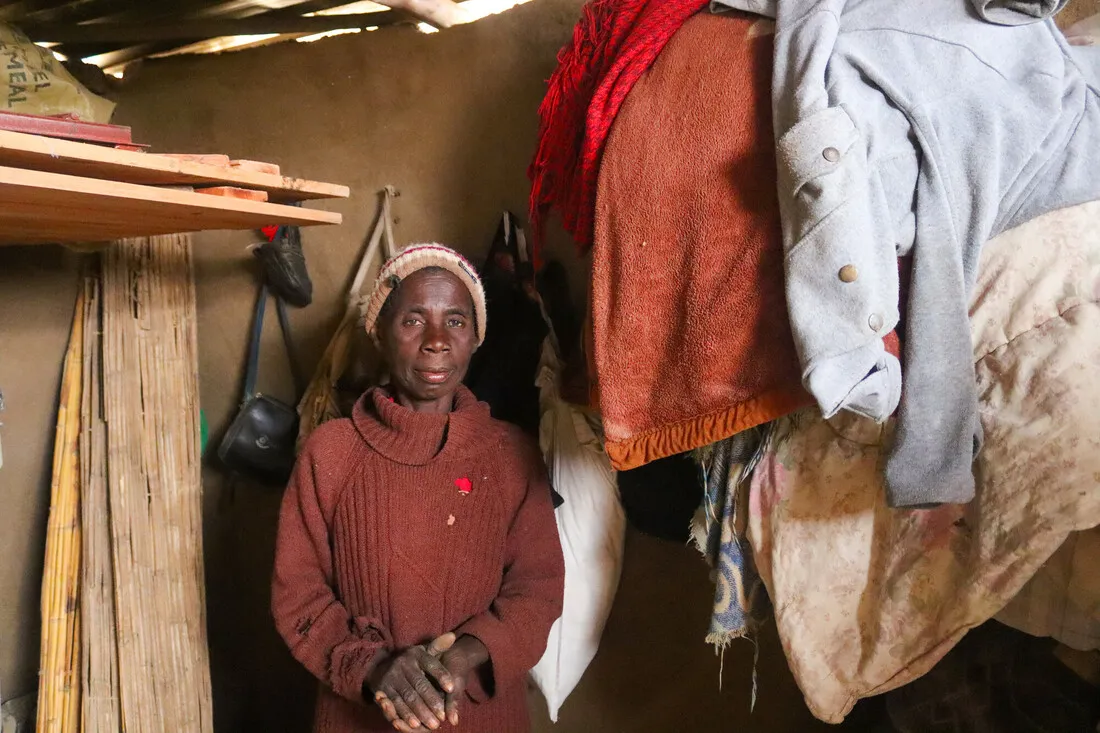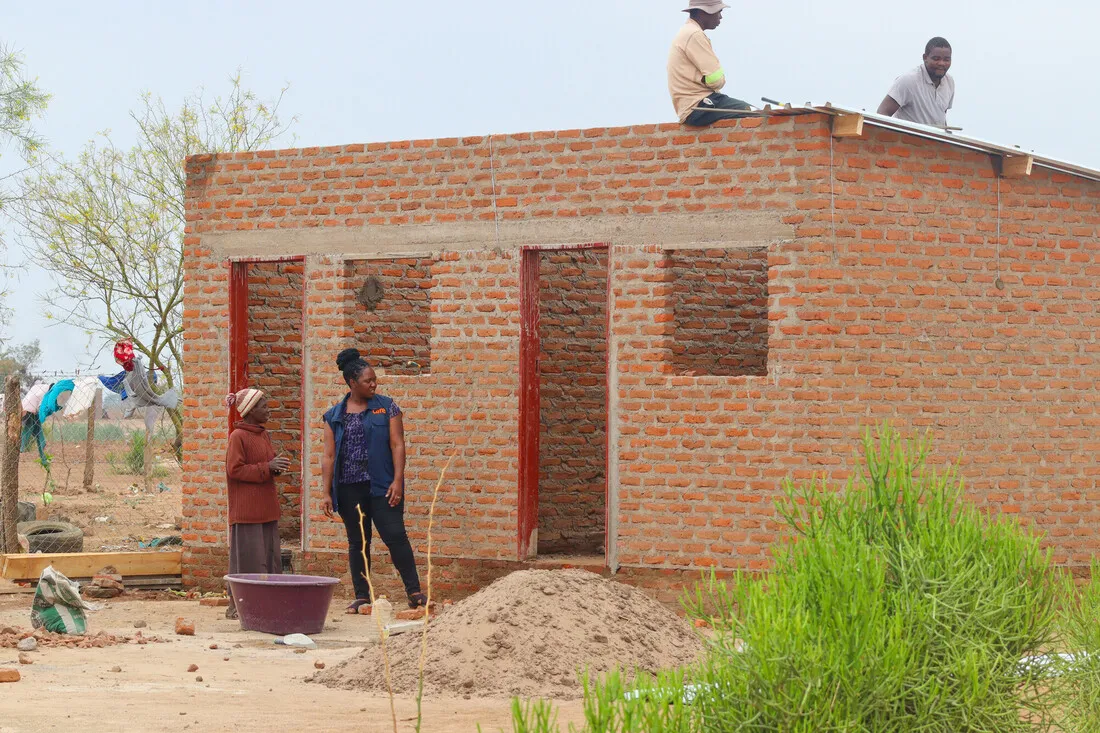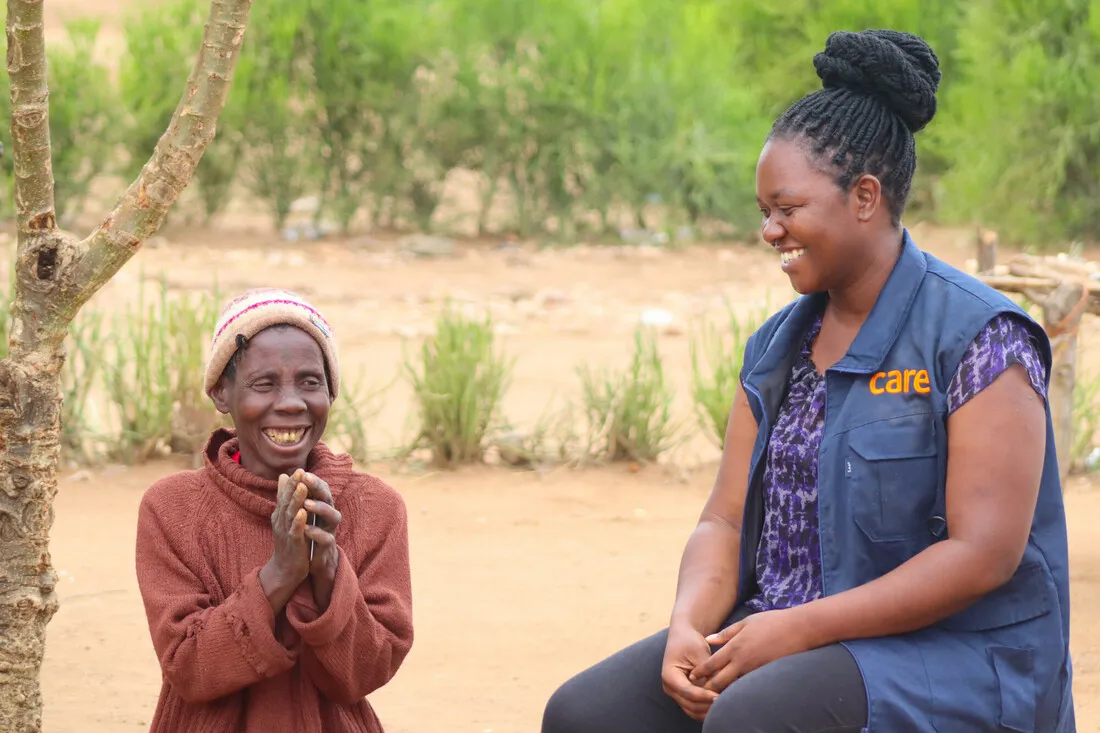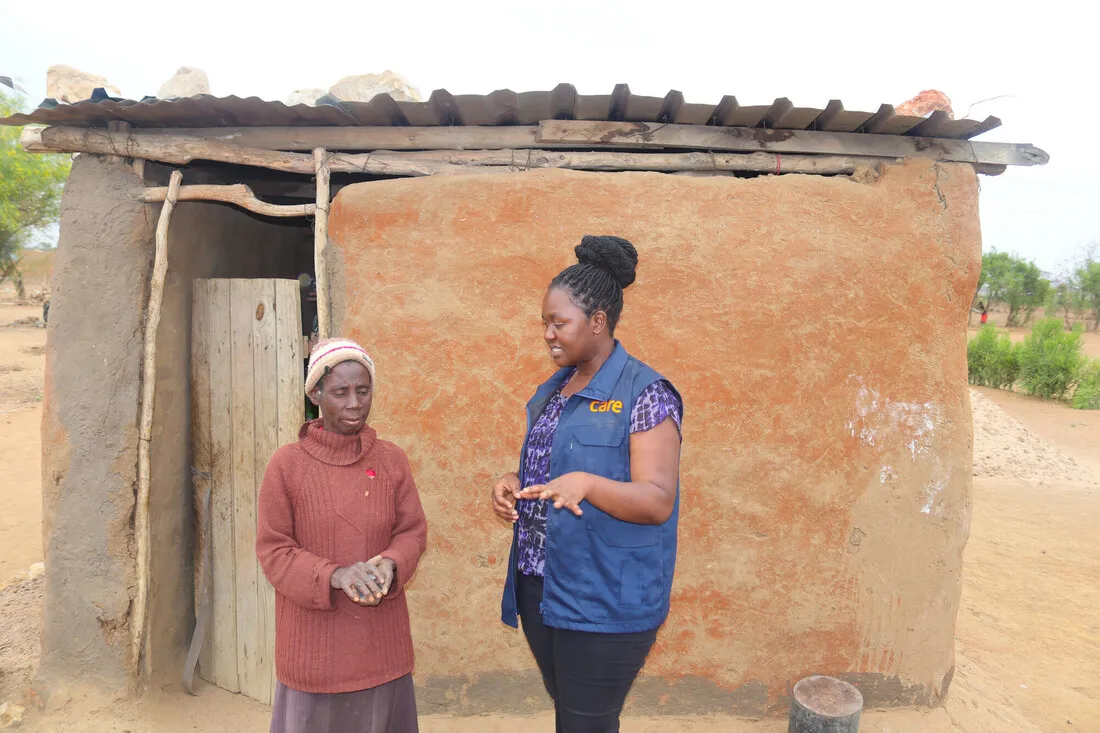Life uprooted: From home to refuge
Mwaedza’s village in Chipinge district was one of the hardest hit. Her once-safe home was now a wreck.
Mwaedza had to seek refuge at her ancestral home in Mabhiza. The journey to Mabhiza was fraught with hardship. “For two days, I walked with my son and three grandchildren, relying on the kindness of strangers for food and transport. It was one of the toughest times of my life.”
When she reached her birth home, her uncle gave her a small piece of land where she built a makeshift pole-and-mud structure.
Life in her new, single-room home was far from ideal. Due to cultural sensitivities, her son couldn’t sleep inside. As Mwaedza recalls, “When it rained, he would knock on the door to come in.
“We’d stand huddled in a corner, holding dishes and buckets to keep the water out. Often, our belongings would be soaked. It was a miserable existence.
“Every rainy season brought dread—fear that the house would collapse, fear that we would lose everything again,” she adds.
The house was a constant source of worry.
“We had to reinforce it with mud every season, knowing that one day, the rains might wash it all away. The roof collapsed once, but thanks to the kindness of our neighbors, we received roofing sheets and wooden poles to rebuild. Otherwise, I don’t know where we’d be today,” she says.

